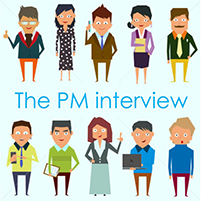 Whether you’re preparing for your first project management interview, or you’re a seasoned project manager looking for his next gig or more senior level PM position, preparation is always a must. The job market is not back to what it was in the 1990s yet, that’s for sure! Analysts like to say unemployment is down and job creation is up, but still a tough go, no matter how you look at it. Preparation is therefore key…
Whether you’re preparing for your first project management interview, or you’re a seasoned project manager looking for his next gig or more senior level PM position, preparation is always a must. The job market is not back to what it was in the 1990s yet, that’s for sure! Analysts like to say unemployment is down and job creation is up, but still a tough go, no matter how you look at it. Preparation is therefore key…
Know the organisation
Firstly, do your homework and make sure that you know some facts about the organisation you are interviewing with. Luckily, doing research on organisations are very easy now and within 10 minutes you can know a lot about any company – so you have no excuse. Find out who the executives are and see if you can find your interviewer on LinkedIn. If you do, find something you might ask them about during the interview (although try not to sound like you are stalking them online). Also look for information on their project management infrastructure or any key projects or technical initiatives they have been involved in. If you can find something that is parallel to a project you have previously managed or participated in, that will go a long way in establishing your credibility with them.
What are they going to ask?
You are most likely going to get the normal interview questions. These could include: Tell me about yourself? Why do you want to work for us? Where do you see yourself in five years? What are you looking for in terms of compensation (do whatever you can to avoid answering this one – make them somehow tell you the range first if you can)?
Some other key questions might include…
- How do you handle non-productive team members?
- Tell me about a situation where your loyalty was challenged. What did you do and why?
- Give me an example of a win-win situation you have negotiated.
- Give me an example of a stressful situation you have been in. How well did you handle it? If you had to do it over again, would you do it differently? How do you deal with stress, pressure, and unreasonable demands?
- What are the necessary steps to successful project management?
- How do you plan for a project?
- Your three-month project is about to exceed the projected budget after the first month. What steps will you take to address the potential cost overrun?
- You are given the assignment of project manager and the team members have already been identified. To increase the effectiveness of your project team, what steps will you take?
- You’ve encountered a delay on an early phase of your project. What actions can you take to counter the delay? Which actions will have the most effect on the result?
- Have you ever had a project that was considered a failure? What factors caused the project to fail?
How to answer these questions
Now, I’m not going to give you answers. I can, however, help you consider how you might conduct yourself when answering these questions…or any questions for that matter. Read on…
- Pause a second or so to formulate a CONCISE answer (hopefully one minute or less per question, as the interviewer’s time is important).
- Keep a professional and business focus…When you’re asked general questions like “Tell me about yourself”, you should mostly focus on your education and experience.
- If your mind goes blank or you don’t the answer, tell the interviewer you’d like to think about that question a little more and come back to it.
- Be yourself, be honest, smile, make eye contact, and so on…Some HR interviewers want folks to have polished scripts that differs from how they would normally respond. You should be professional, but don’t try to present a false personality.
- Dress professionally, even if it’s a casual work environment (unless told specifically otherwise).
- Practice the night before the interview on formulating summary answers to key questions you expect that might be asked. Develop and even memorise summary statements (keeping the advice from #4 in mind that you don’t want to say things completely unnatural). For example, print Michael’s great list and answer it in single sentences. Then go over it and refine your answer as a continuous improvement process. Once finalised, print a copy and read it over while you’re in the waiting room just prior to the interrogation process.
- Ask a family member or friend to select a few questions and have them give you a brief interview.
Summary
The key is always to be yourself. Try not to talk too much, but certainly sound confident and look for any way to apply your past experience to an answer. Your ideas may be great, but if you’ve been through it yourself…even better. And if it’s a face-to-face interview, be sure to make good eye contact as it will let the interviewer know you are serious, interested and providing thoughtful and honest responses.


